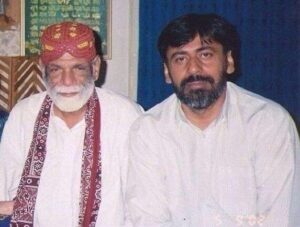Guide to a beautiful life
Introduction
Life is a journey filled with ups and downs, but sometimes, it can feel like we’re stuck in a never-ending cycle of hardship and misery. This state of constant unhappiness and dissatisfaction with life is often referred to as having a “bad life.” In this blog, we will delve into the understanding of what a bad life entails, explore its causes in detail, discuss various management strategies, and introduce a unique solution known as the Ultimate Remedy, which offers hope and healing for those struggling with the challenges of life.
Understanding a Bad Life
A “bad life” is a subjective term that can vary from person to person. However, it generally refers to a life characterized by persistent negative emotions, unfulfilled desires, chronic stress, and a sense of hopelessness. People experiencing a bad life often find it challenging to experience joy, satisfaction, or contentment, and they may feel trapped in a cycle of misery.
Causes of a Bad Life
-
Psychological Factors: Mental health issues such as depression, anxiety, and trauma can significantly contribute to a sense of having a bad life. These conditions can distort one’s perception of reality, leading to persistent negative thoughts and emotions.
-
Unresolved Past Experiences: Past traumas, unresolved conflicts, or painful experiences can cast a shadow on the present and future, making it difficult to find happiness.
-
External Stressors: External factors like financial difficulties, relationship problems, or job-related stress can create a negative environment that contributes to a bad life.
-
Unhealthy Lifestyle Choices: Poor diet, lack of exercise, and substance abuse can negatively impact both physical and mental well-being, contributing to feelings of despair.
-
Lack of Purpose and Direction: A lack of clear goals, ambitions, or a sense of purpose in life can leave individuals feeling adrift and unfulfilled.
Management of a Bad Life
Managing a bad life requires a multi-faceted approach that addresses both the underlying causes and the symptoms. Here are some strategies to consider:
-
Seek Professional Help: If you suspect that mental health issues are contributing to your bad life, it’s essential to consult with a mental health professional who can provide therapy, medication, or other appropriate interventions.
-
Self-Care: Prioritize self-care practices such as regular exercise, a balanced diet, sufficient sleep, and stress management techniques like mindfulness or meditation.
-
Address Past Traumas: Working through unresolved past experiences with the help of a therapist can be a crucial step towards healing and moving forward.
-
Set Clear Goals: Establish meaningful goals and a sense of purpose in your life to create a sense of direction and motivation.
-
Build Support Systems: Surround yourself with a supportive network of friends and family who can offer emotional support and encouragement.
The “Ultimate Remedy” An Alternative Approach
The Ultimate Remedy is a groundbreaking form of audio therapy designed to address the root causes of a bad life. It utilizes the power of sound and intention to promote healing and alleviate a wide range of conditions, including depression. Here’s how you can use it:
-
Download the Ultimate Remedy audio from our website (links provided).
-
Listen to the audio following the provided instructions. It is recommended to find a quiet and comfortable space where you can focus your attention on the audio.
-
Allow the soothing sounds and intentions embedded in the audio to guide you towards a state of deep relaxation and inner healing.
-
Use the Ultimate Remedy regularly to experience its full benefits. Consistency is key to achieving positive results.
Testimonials from individuals who have used the Ultimate Remedy highlight its effectiveness in promoting emotional well-being and overall life satisfaction. For any questions or support, you can contact help@mastmasthealers.com.
Happy Patients
Years since day one
%
Satisfaction
Testimonial
How to Listen to the Ultimate Remedy:
Download the Ultimate Remedy audio from our website or app. It’s free and accessible to all.
- Choose a quiet, comfortable space where you won’t be disturbed.
- Close your eyes and visualize yourself in the presence of your higher power or the essence of the universe.
- Listen to the audio with great concentration and closed eyes.
- After the audio is finished, open your eyes and take half a glass of water.
- Close your eyes again and say “your name” or a word that represents your belief (such as “God”, “Universe”, or “Love”) three times in your heart.
- Drink the water with closed eyes in three sips.
- For optimal results, it’s recommended to listen to the Ultimate Remedy three times a day (morning, evening, and before sleeping) for seven consecutive days.
About the Creator – Syed Safdar Hussain Bukhari
Introduction and Early Life
Syed Safdar Hussain Bukhari, also known as Kakian Wali Sarkar, was a unique example of kindness, devotion, and tenacity. Born on May 6th, 1940, he dedicated his life to serving humanity and providing relief to those suffering from various ailments.

Social Work and Spiritual Journey
Between 1960-1980, he engaged in social work by undertaking road repairs, establishing schools, and arranging medical supplies in Lilla Town. In 1990, he left his ancestral home and family wealth to move to Lahore, where he comforted the depressed and saddened through mystic dance and music.
The Ultimate Remedy
In 1998, Baba Bukhari’s research led to the discovery of “The Ultimate Remedy,” a blessed audio that he believed could cure physical, psychological, spiritual, and supernatural problems. The remedy involved listening to the audio three times a day for seven consecutive days, followed by a specific water ritual. This method claimed to cure various ailments, including coronavirus, AIDS, cancer, drug addiction, worldly problems, and psychological issues.
Legacy and Death
Baba Bukhari’s research and unconditional love left a lasting impact on humanity, providing positive thinking, peace of mind, health, fearless life, and an example of love and compassion. He passed away on February 8th, 2005, leaving behind a legacy of healing through “The Ultimate Remedy.”

His spiritual successor is Syed Baba Jaan
According to Baba Bukhari (RA), his spiritual successor is Mr. Shakir Uzair, also known as Syed Baba Jaan . As the chosen heir to Baba Bukhari’s spiritual legacy, Syed Baba Jaan carries forward the teachings and practices that have been passed down through generations. Dedicated to serving humanity and promoting healing, Mr. Shakir Uzair continues to spread the message of love, compassion, and the transformative power of the Ultimate Remedy to help countless individuals in their journey towards holistic wellness and personal growth.

